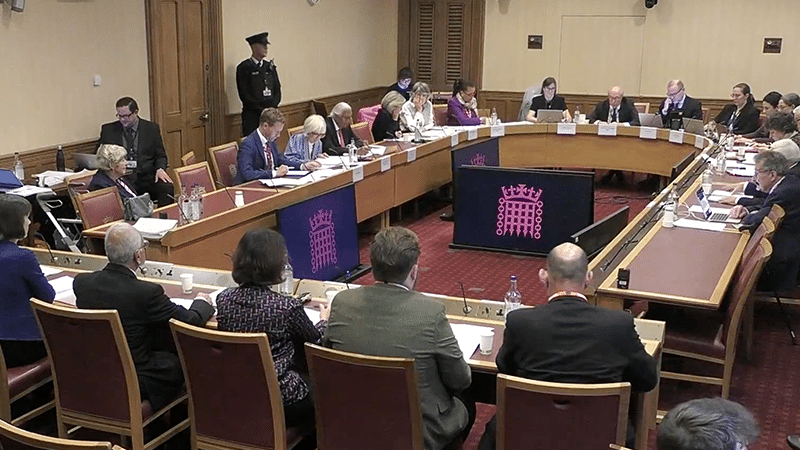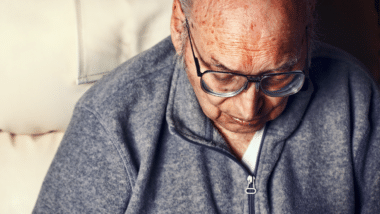Serious misgivings about plans to legalise assisted suicide in England and Wales have been set before Peers.
During two days of evidence this week, the House of Lords Select Committee considering the Terminally Ill Adults (End of Life) Bill heard key witnesses expose gaps, flaws and weaknesses in Kim Leadbeater MP’s proposals.
The Select Committee is required to report back by 7 November, with Peers scheduled to begin debating amendments to the Bill in a ‘Committee of the Whole House’ on 14 November.
‘Moral hazard’
Professor Katherine Sleeman, Laing Galazka Chair in Palliative Care at King’s College London, told Peers: “We know from evidence, and I see it in clinical practice, that palliative care can alleviate the wish for a hastened death. Palliative care can help people who want to die want to live.”
Palliative care “can help people who want to die want to live”. pic.twitter.com/ED8AqT6zKP
— The Christian Institute (@christianorguk) October 29, 2025
But she warned of a “huge gap” between patients who need palliative care and those who have access to it. She also spotlighted a lack of clarity in the Bill over what a clinician should do in the event of complications, or if “a person takes too long to die”.
Age UK Director Caroline Abrahams feared an assisted suicide law could dissuade people from advanced care planning and exposed the Bill’s failure to take account of the impact of domestic violence among elderly people and the associated risk of coercion.
Abrahams spoke of the “moral hazard for people who stand to gain from older people after their death” and warned that assisted suicide could lead to older people being devalued in society.
Dignity and worth
The Committee also heard from Professor Martin Vernon of the British Geriatrics Society, who said the Bill could be seen as a ‘cost-cutting’ measure and put vulnerable elderly people under ‘systemic’ pressure to end their lives “earlier than otherwise might have occurred naturally”.
Dr Sarah Hughes, Chief Executive of MIND, pointed out that people with mental health conditions are “incredibly vulnerable” to coercion, and that the proposed safeguards in Kim Leadbeater’s Bill are inadequate to protect them.
Dr Sarah Hughes (Chief Executive of MIND) says people with mental health conditions are “incredibly vulnerable” to coercion, and that the proposed safeguards in Kim Leadbeater’s Bill are inadequate to protect them. pic.twitter.com/X8Ob3irV9l
— The Christian Institute (@christianorguk) October 30, 2025
She also explained that people with cancer, and those who struggle with their mental health, often fail to receive the necessary care. Under the regime proposed by Leadbeater, she warned, assisted suicide would become an option they might consider. Consequently, she added, this Bill “doesn’t feel safe to me”.
Ken Ross, Founding Officer of The National Down Syndrome Policy Group, highlighted the danger the Bill posed to people with Down’s syndrome, who are already let down at times by medical practitioners who may believe their lives are of lesser value.
Ken Ross, Founding Officer of The National Down Syndrome Policy Group, notes that already people with Down’s syndrome are sometimes let down by medical practitioners who may believe their lives are of lesser value. pic.twitter.com/yQC0baL2ff
— The Christian Institute (@christianorguk) October 30, 2025
Leadbeater Hypocrisy
Last week the Committee heard from medical experts including representatives from the Royal College of General Practitioners, the British Association of Social Workers, the Royal College of Psychiatrists, and the former Chief Coroner for England and Wales.
It also heard from the Bill’s sponsor Kim Leadbeater, who, when challenged on the dropping of her ‘ultimate safeguard’ of a high court judge, said that a judge was not the “most patient-centred approach”.
She has been accused of hypocrisy, after she attended an event focussing on suicide prevention last week and called it a “powerful reminder of the need for continued work on suicide prevention”.
Writing for The Critic, Adam James Pollock commented: “It is morally nonsensical to advocate for greater support for suicide prevention while simultaneously spearheading the campaign to legislate for suicide to be provided by the National Health Service on behalf of the state.”
Poll: Pressure mounts against assisted suicide in Scotland


